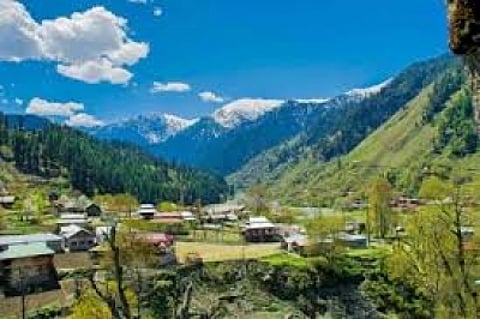By: Amjad Ayub Mirza
After a lapse of 31 years, Pakistan-occupied Jammu & Kashmir (PoJK) is going to hold local body elections on November 27. According to the schedule released by the Azad Jammu Kashmir Election Commission, candidates have been asked to submit their nomination papers between October 14 and 22.
On October 22, the approved list of the nomination papers of the candidates will be published. Election symbols will be allotted on October 31.
For 31 years, Pakistan has purposefully deprived the people of PoJK of local representation. Therefore, creating space for local politics to be dominated by tribe and cast affiliations.
Since the 1990s, Pakistan has focused more on cross-border terrorism with catastrophic results for the people of Jammu and Kashmir.
In 1990, the genocide of Kashmiri Pandits as well as the targeted assassinations of Hindu and pro-Indian Muslim politicians and provocative acts of stone pelting by paid goons destroyed the social and cultural fabric of my people.
It is only after the abrogation of Articles 370 and 35A of the Indian Constitution that peace and development have returned to the Valley and once again our social and cultural fabric has begun to repair itself.
The local body elections due on November 27 are not going to be able to establish a tranquil grass root level democratic system in PoJK. The reason is simple. The nomination form to apply to become a candidate in the forthcoming elections demands one to sign an oath of allegiance to Islam, Pakistan, and PoJK's accession to Pakistan.
I present to you the text of the oath for you to judge the hypocrisy of the Pakistani government's claim to support the movement for the right of self-determination of my people.
It states: "I solemnly declare that I believe in the theology of Pakistan, the ideology of State's accession to Pakistan, and the integrity and sovereignty of Pakistan."
I am sure that the regular reader of my work would by now understand the nature of the conflict in Kashmir. It began when in October 1947 Pakistan attacked and occupied the western parts of Jammu and Kashmir.
For 75 years, Pakistan has refused to withdraw its troops from our lands despite the fact that the UN resolutions have named Pakistan an aggressor and asked Pakistan to withdraw from PoJK to facilitate a referendum to decide the fate of this part of the world.
However, Pakistan calls for our allegiance as a condition to represent our people. Asking our people to believe in the theology of Pakistan simply means that other religious groups have been made an outcast. What is the theology of Pakistan? It is based on the communal hate ideology of Jinnah's two-nation theory that divides citizens of a nation-state on the basis of Islam.
What is meant by the ideology of the State's (PoJK's) accession to Pakistan? It means to divide my people on the basis of communal hate between Hindus and Muslims, which implies that since the majority population of the so-called Azad Jammu and Kashmir is Muslim, we would support our accession to Pakistan. This is a serious breach of even the resolutions of the United Nations that have given us the right to choose between India and Pakistan.
Therefore, someone like myself, who advocates PoJK's accession to India, cannot become a local councilor in PoJK. Someone who is of Hindu or Sikh or even Christian faith cannot become a local councilor.
Here is the text of the nomination form that demands the candidate to declare: "I believe in the absolute and unqualified finality of the Prophethood of Muhammed (Peace be upon Him), that I do not recognize such a claimant to be a Prophet or a religious reformer, nor do I belong to the Quadiani Group or the Lahori Group or call myself Ahmadi."
Lahori Group is an offshoot of the Quadiani movement and split shortly after the death of the founder of Ahmadiya Movement, Mirza Ghulam Ahmed, in 1903.
With so many restrictions in place, how can one expect a broad-based local body government to come into being in PoJK?
The local bodies election due on November 27 is taking place as an attempt to keep the people glued together in the name of the conservative jihadi Islamic narrative of the two-nation theory. No wonder, as I write, 33,000 military and security personal have begun to pack their bags to be stationed at every polling station in PoJK.
Local body elections under the watchful eye of the Pakistan military itself speak volumes about the credibility and transparency of this farce that is taking place after 31 years. (KB/IANS)
(Dr. Amjad Ayub Mirza is an author and human rights activist from Mirpur in PoJK. He currently lives in exile in the UK. The views expressed are personal)


